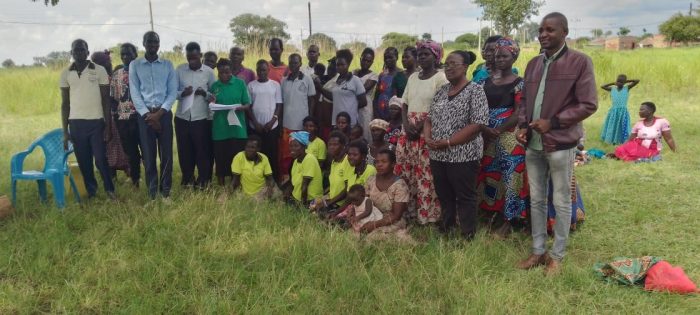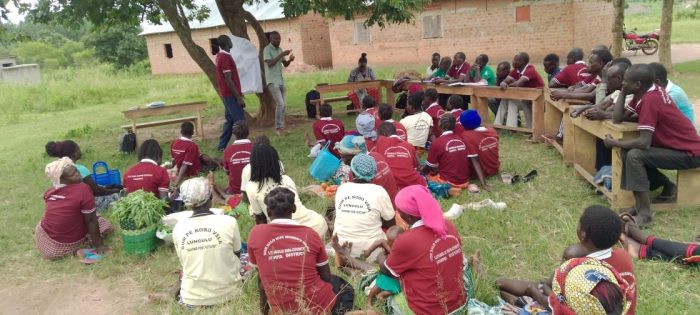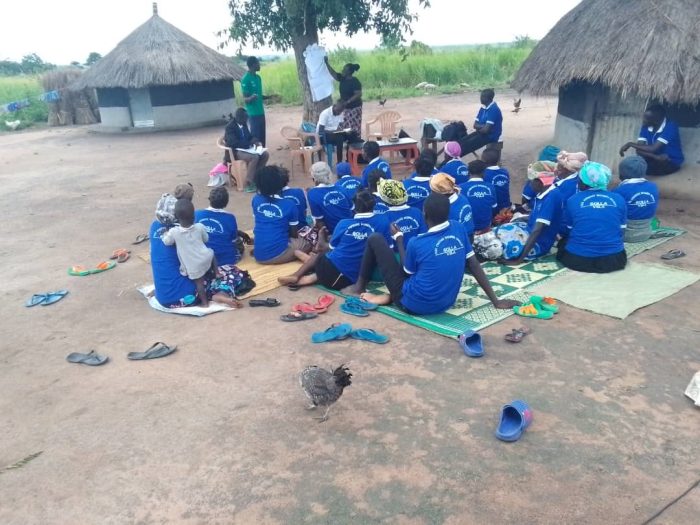
Business Development Training Improves Performance of Smallholder Farmer Cooperatives in Nwoya district

Nwoya curved from Amuru district consist of 10 sub-counties with about 120 smallholder farmer groups/cooperatives. The district has the great potential to improve the livelihoods and rural economy due to the presence of well drained fertile soils conducive for most of the crops.
Smallholder farmers in the area cultivate maize, rice, sorghum, groundnuts, beans and soybean for food and money.
Over 471 smallholders belonging to eight groups/cooperatives in Purongo, Anaka and Lungulu Subcounty in Nwoya district received Business Development Training.
The groups include: Rubanga Aye Mamiyo Group, Wane no Kwene Group, Mic Palubanaga Group, Beikit Aye Alonyo Group, Yesu Aye Lwot Women Group, Woo Balo Kuc Women Group, Gumbe Kobo Group and Wari Cumbwa Group.
Each group consisted of at least 59 smallholder farmers.
Smallholder farmers had challenges associated with low capital, low marketing skills, and inadequate business development and financial management skills.
During the intensive trainings held on their group meeting days, BDS trainer, Mr. Samson Peter Okalebo and Ms. Charity Busingye expertly delighted the groups in two phased sessions conducted one after the other.

Samson in his first sessions highlighted a need for the smallholder farmers to get out of their homes to relate with the market if they are to start to think about getting money from their farm enterprises.
He added that farmers need to know how to plan, analyze and manage risks, keep records, build relationships with market and invest with the motive of getting profits.
In his subsequent teachings, Samson demonstrated how smallholder farmers can make money by training them on business planning and decision making, costing and analysis, activity plan development for timely operations, pricing and marketing.
He urged smallholder farmers to pay attention to proper postharvest handling techniques and work together in bulking their produce in order to attain high volumes and high quality if they are to benefit from the high prices of the big buyers.
Samson after showing farmers how to make money invited Ms. Charity Busingye to train on financial education so that farmers gain better understanding on how to use and keep money, but most importantly continue in production to sustain the business.

In her unique training style, Charity helped small farmers to understand money. She trained smallholder farmers to prioritize alternatives to generate money and plan needs and wants. She also showed farmers how they can use the income statements to balance their net worth so that they can benefit from money lending institutions.
After the two training sessions, small farmers in their respective cooperatives applauded the trainings as concrete foundation for the beginning of transformation and gave more comments as follows;
Mr. Olangaito James a member of Wane no Kwene Group said it is a great opportunity to know how to develop their enterprises, set prices and market their farm produce in a way that earns them more money so that they can increase their production and meet household needs.
“In fact, before the training, we were farming but we did know whether we were making profits or not. The only thing we could do is to complain, but now I can say with confidence that we are empowered”, he said.
Jenifer Oketcho – a member of Beikit Aye Alonyo Group said they are empowered to invest and earn more money and live quality lives.
Apio Jenifier – Mic Palubanaga Group said they have learnt how to make money and manage money. In our group, we did not know how to increase production from our little land, but now I can expand from one acre to two, three and many more.
In the last minutes of the training, smallholder farmers pointed out challenges associated with lack of quality seeds, fertilizers and chemicals and other equipment as key issues still affecting their farming as business.
Samson- BDS trainer who also doubles a Business Development Executive at Agripoint, said they are going to partner with agro-input suppliers like Finca, Grow More Seeds, East African Seed to ensure farmers get quality inputs in time so that they increase productivity.
“As mentioned before, I urge you to get out from sitting at homes to search for reliable buyers, relate with buyers so that you can plan to produce what they need and earn money and continue to expand production”, he remarked.
“We are thrilled to have participated in the business development training. It is the first of its kind. We never used to plan, budget and analyze our crops and market. We do not know if we have been making profits from what we cultivated. This training has impacted my life and I hope to start to plan, analyze crop ventures and set up the prices for my products from the beginning of the next season”. Christopher cultivates maize in Anaka subcounty in Nwoya district. Rubanaga Aye Mamiyo belongs to 120 smallholder cooperatives in the district”.

